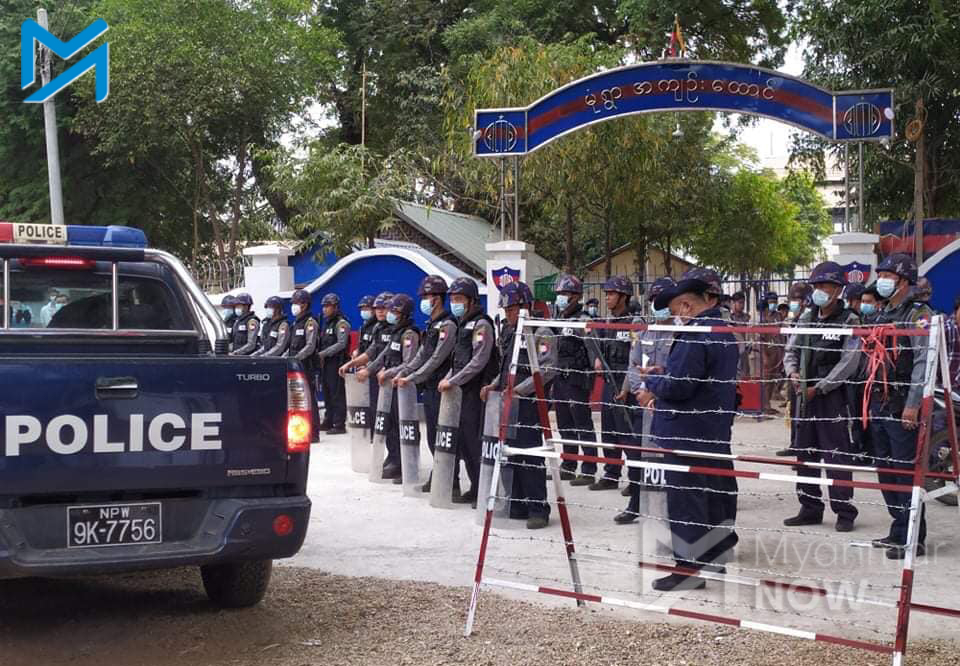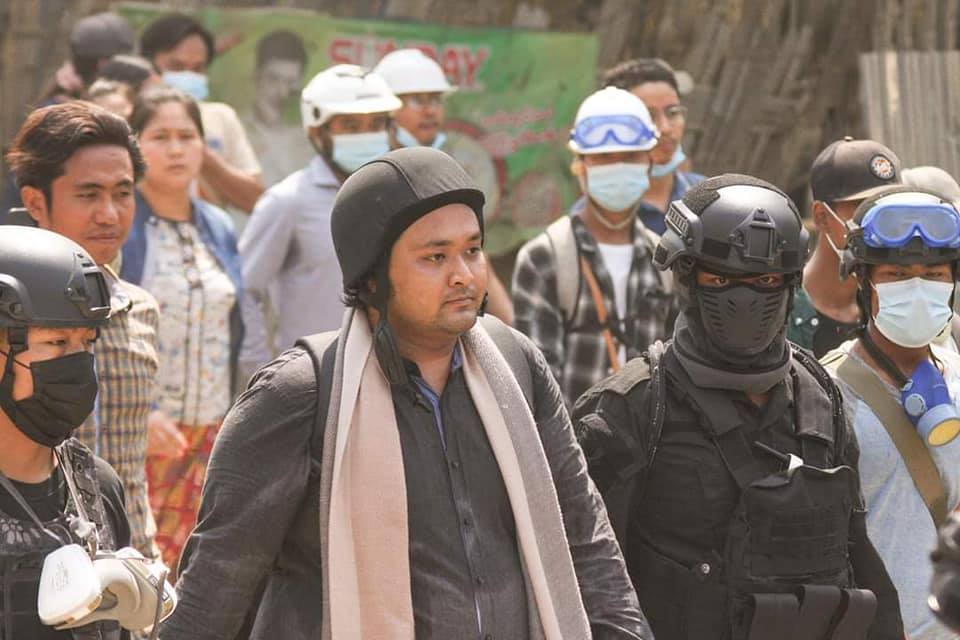
Political prisoners who participated in the September hunger strike in Sagaing Region’s Monywa Prison are facing retaliatory legal penalties a month later, the Monywa People’s Strike Committee said.
In early September, close to 50 inmates took part in the strike to protest repressive treatment at the prison in the Sagaing Region capital, provoking further crackdowns by the prison authorities. After negotiating an end to the strike, authorities are now reportedly adding time to the participants’ sentences.
The Monywa People’s Strike Committee, an activist civil society organisation, said in a virtual press conference on Wednesday that their imprisoned leader Wai Moe Naing was one of nine political prisoners who participated in the strike who have since had their prison terms extended by one year.
Wai Moe Naing, 28, has been serving a sentence for more than 50 years since regime forces arrested him in 2021, after the military coup.
The Monywa People’s Strike Committee also said that 17 other inmates, who protested when prison authorities initially refused to respond to the hunger strike, have now incurred charges under Penal Code Section 147—on rioting—which carry a maximum penalty of two years’ imprisonment.
In solidarity with their oppressed fellow prisoners, other Monywa Prison inmates are challenging the authorities to charge them under the same statute, said strike committee member Shin Thant, citing first-hand accounts from inside the prison.
“Along with the 17 political prisoners who have been charged, the rest of the political prisoners are going to request that the court prosecute all of them together. They say this is to show that all the political prisoners are united,” Shin Thant said.
According to the law, prisoners who adhere to rules set by the prison administration are eligible early release or a reduction of their sentences.
The military council has yet to issue any public statement about extending sentences or bringing additional charges against Monywa Prison inmates.
Last month’s strike began after a special inspection team made up of junta personnel from the military, police, general administration department, and fire department carried out an unannounced raid at Monywa Prison on September 8, confiscating books, food and other personal items from the inmates.
That day, 15 political prisoners collectively demanded the return of their confiscated property. When prison authorities ignored the 15 inmates’ demands, other prisoners including Wai Moe Naing joined them, with nearly 50 initiating a hunger strike the day after the surprise search and confiscation.

The punishment against participating political prisoners comes more than a month after the prison authorities made concessions to the striking prisoners, agreeing to return their property as well as provide them with adequate medical care and ease restrictions on the delivery of care packages from outside the prison.
The additional punishment imposed by prison authorities was gratuitous and a violation of the political prisoners’ rights, Shin Thant said.
“This is just treating them as enemies. They’re already in prison and have already been arrested… So they continue to torture our comrades psychologically. This only shows the brutality of the military dictators,” he said.
Following the hunger strike at Monywa, the military council sacked five members of the prison’s staff, including the superintendent. The Monywa People’s Strike Committee also reported that four prison officials at the rank of corporal received demotions for a period of six months.
Myanmar Now has not been able to verify the military council’s action against the members of the prison administration independently.
According to Shin Thant, some of the hunger strike participants were in poor health.
“As for the health situation, the situation was serious from the beginning. Some have been suffering from the effects of starvation: malnutrition, reduced body weight, and needing injections of intravenous supplements and drugs,” he said.
Since Myo Swe of the junta Ministry of Defense was appointed director general of the Prison Department in July this year, repressive conditions in the prisons have reportedly become worse.
Family members of political prisoners at Monywa Prison have said there are strict limits on items delivered to political prisoners in parcels, and that their movement within the prison and access to television and books is also severely restricted.
The military junta continues to arrest opponents as well as those merely under suspicion of supporting its opponents throughout the country.
According to the Assistance Association for Political Prisoners, the regime continues to keep 19,600 people in detention throughout Myanmar as of October 19, 2023, of whom only 7,799 have been tried and sentenced.
